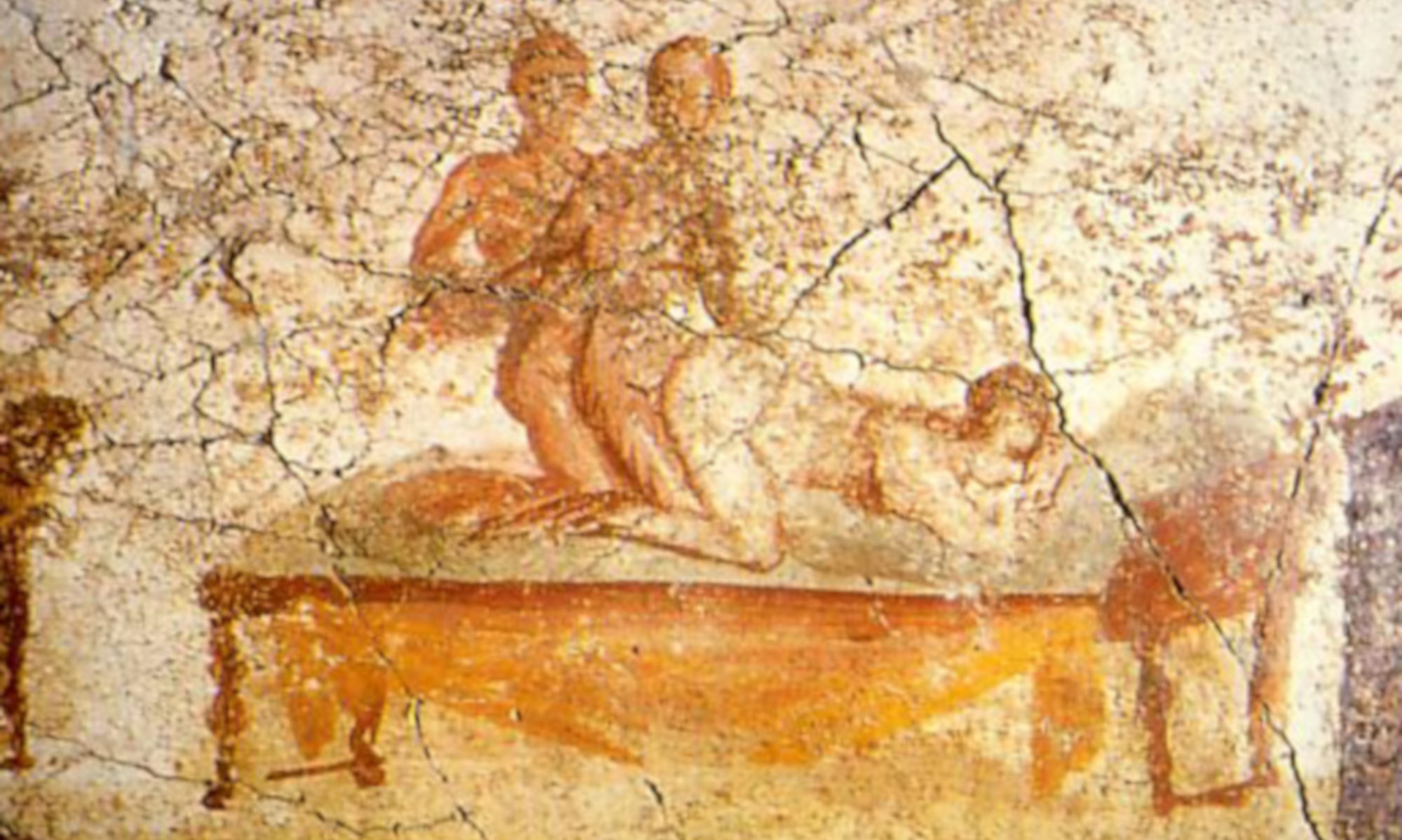To the Manes of Allia Potestas, freedwoman of Allius.
Here lies one who came from Perusia.
A better woman was never seen, or at least of all women scarcely one or two surpassed her.
All your active body is confined in a little urn.
Cruel lord of death and stern Persephone, why do you snatch away what is good and let the worthless remain?
Everyone asks for her and I am weary of replying; their tears show their love for her.
Strong, honest, frugal, upright, most trusty of housekeepers, neat in the house and on the street, well-known to everybody, she could face every task by herself.
A woman of few words she was without reproach.
She was the first to rise from her couch, and the last to betake herself to the quiet of her bed after everything had been done in due order.
Never did the wool leave her hands without good cause.
No one surpassed her in unselfish devotion and in helpful ways.
She was not too well pleased with her- self and never thought of herself as free.
She was fair, with beautiful eyes and golden hair.
No other woman’s face was of such ivory-like brightness, they say; her breasts, white as snow, showed their slight form. What shall I say of her legs? She had the bearing of a very Atalanta on the stage.
She did not worry about her toilet, but she had a beautiful body and she kept her limbs smooth.
Her hands were hard, and perhaps you will count that a fault; but nothing pleased her except what she had done herself with her own hands.
She had no wish to make acquaintances, but was content with herself.
She was not much talked of because she had done nothing to cause it.
While she lived she so managed two youthful lovers that they were like Pylades and Orestes.
One house sheltered them both and they lived together in harmony.
But now since her death these two men are estranged and each grows old by himself.
The work which such a woman accomplished now a few moments destroy.
Look at Troy, what a woman once did, if one may compare great affairs with the small.
Your patronus with tears that know no end gives these verses as a tribute to you who are lost — your patronus from whose heart you have never been torn — verses which he thinks are pleasing gifts for the dead.
Since your death no woman has seemed good to him.
He who lives without you, while still living, sees his own death.
Your name in gold he always wears upon his arm, there where he can protect it; power (Potestas) is entrusted to gold.
And yet as far as my praises shall avail, and as long as my verses live, (you shall live).
To comfort me I have an image of you which I cherish as sacred, and to which many a garland is given; and when I come to you, it, too, shall come. Unhappy that I am, to whom shall I commit the solemn rites in your honor?
Still, if I find anyone to whom I can give such a trust, in this one respect I shall perhaps count myself fortunate though you are gone from me.
Ah me, you have prevailed; as your life is ended, so I, too, live no more.
He who insults this tomb, has dared to insult the gods as well.
Be assured that she who is celebrated in this inscription has a divinity to protect her.
Bron: https://archive.org/stream/jstor-4387223/4387223_djvu.txt

 Download this page in PDF format
Download this page in PDF format